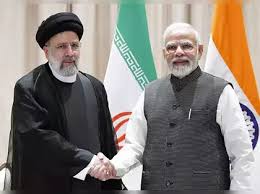India wary about Iran’s nuclear project: Voted against in 2005, abstained in 2024

India’s position on Iran’s nuclear program has shifted significantly over the past two decades. In 2005, India voted against Iran at the International Atomic Energy Agency (IAEA). But in 2024, it chose to abstain. This evolution reflects New Delhi’s changing global strategy, regional interests, and a more confident foreign policy.
2005: India Voted Against Iran
In September 2005, India supported a key IAEA resolution. It stated that Iran had failed to meet its Nuclear Non-Proliferation Treaty (NPT) obligations. The vote allowed the issue to move to the United Nations Security Council.
This vote surprised many. Iran had long been a close energy and strategic partner. But India’s growing ties with the United States played a major role in its decision. At the time, India was negotiating the Indo-U.S. civil nuclear agreement. Supporting the IAEA resolution helped it move closer to finalizing the deal.
The decision led to criticism at home. Opposition parties accused the government of yielding to Western pressure. Iran also expressed disappointment. Still, India defended the vote as a step toward securing its national interests.
2024: India Chooses to Abstain
In June 2024, the IAEA again tabled a resolution on Iran. It criticized Tehran for not fully cooperating with nuclear inspectors. This time, India abstained.
By not taking a clear position, India signaled a more balanced and independent foreign policy. It neither supported the West nor opposed Iran. Instead, it focused on strategic neutrality.
The Ministry of External Affairs issued a short statement. It emphasized India’s support for peaceful nuclear energy. It also highlighted the importance of diplomacy and dialogue over confrontation.
What Has Changed Since 2005?
Several key factors influenced India’s new approach:
1. A Multipolar Global Order
In 2005, the U.S. was the world’s dominant power. India was strengthening ties with Washington. Today, power is more spread out. China, Russia, the EU, and regional groups like BRICS all hold weight.
India now aims to maintain strategic autonomy. It does not want to be seen as siding with one bloc over another.
2. Stronger Ties with Iran
India and Iran continue to cooperate in energy, security, and connectivity. The Chabahar Port project is a key example. It allows India to reach Central Asia and Afghanistan, bypassing Pakistan.
By abstaining, India preserved its relationship with Iran while avoiding global backlash.
3. Energy Security
India imports most of its oil. Although U.S. sanctions have limited direct trade with Iran, New Delhi is open to resuming it in the future. Voting against Iran might have risked future energy deals.
4. Strategic Independence
India has deepened ties with both the U.S. and Israel, who oppose Iran’s nuclear plans. At the same time, it maintains strong relations with Russia, China, and Gulf nations.
India’s 2024 abstention reflects a desire to act in its own interest, not under pressure from any power.
Domestic Factors Also Play a Role
India continues to expand its civil nuclear energy program. As a country outside the NPT, it has always defended the right to peaceful nuclear use. Abstaining in 2024 helped avoid setting a precedent that might be used against it later.
Also, foreign policy matters more in Indian politics today. Taking a balanced stance appeals to domestic voters who value India’s growing global status.
How the World Reacted
Western countries, including the U.S. and its European allies, expressed mild disappointment. However, they did not criticize India publicly. They understand India’s role in maintaining regional balance and its importance in countering China.
Iran welcomed the abstention. It praised India for taking a “mature and balanced” approach.
India’s vote may not change the IAEA’s resolution outcome. But it sends a clear message. India will no longer take sides just to please others. It is confident in its own judgment.
Conclusion
India’s position on Iran’s nuclear issue has clearly evolved. In 2005, it aligned with the U.S. and the West. In 2024, it took a more independent path.
The world has changed, and so has India. Today, India wants to protect its interests, avoid unnecessary conflict, and maintain flexibility in foreign policy. Its abstention at the IAEA reflects these goals. As India rises on the global stage, such decisions will define its future role in international affairs.itimacy, today’s abstention is rooted in pragmatism, regional strategy, and global ambitions. As India’s global influence grows, its foreign policy choices—like this one—are increasingly shaped by a desire to balance principles with practical realities.






